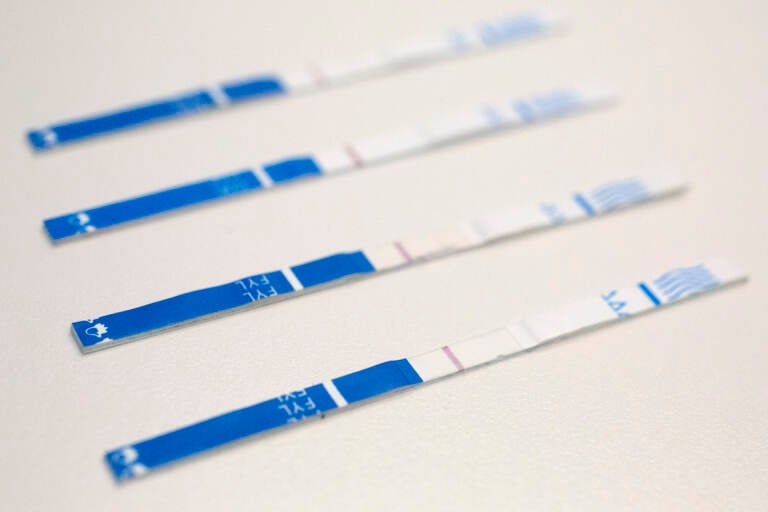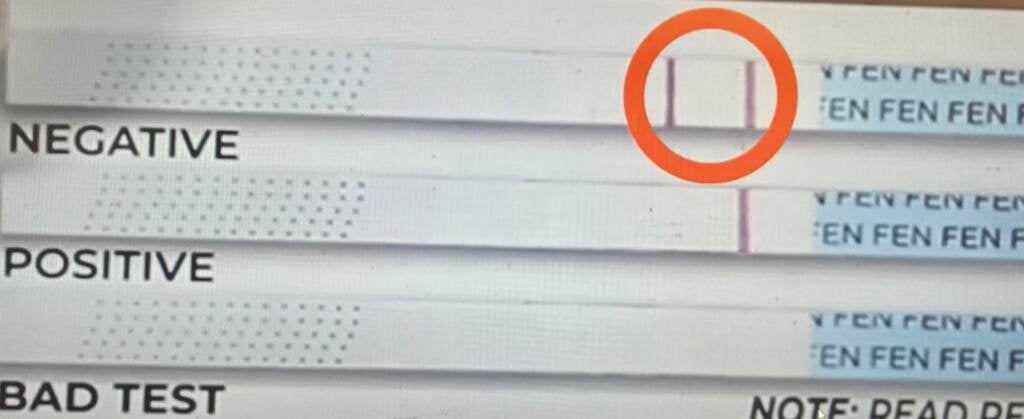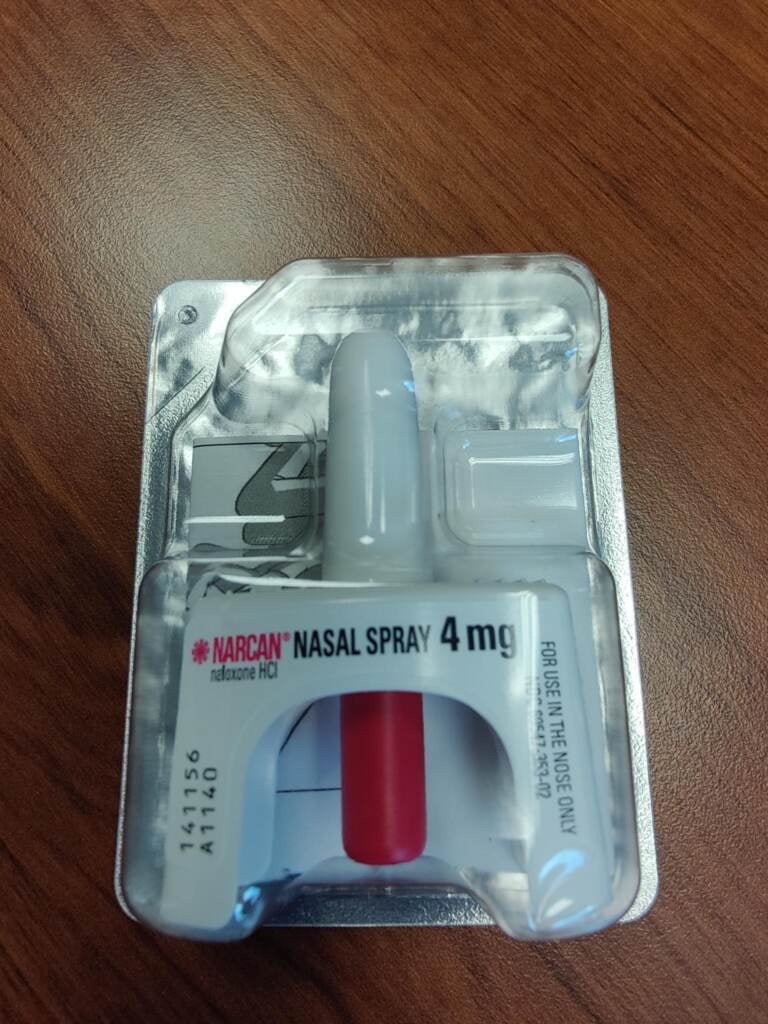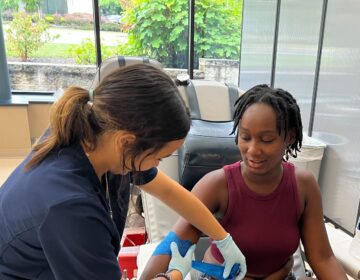With fentanyl tied to 83% of Delaware overdoses, state now providing free test strips
The synthetic painkiller is 50 times stronger than heroin, and two milligrams can kill. Officials want users to know if it’s in their heroin, cocaine, and other drugs.

This May 10, 2018, file photo shows an arrangement of fentanyl test strips. (AP Photo/Mark Lennihan, File)
Grappling with ways to reduce record overdose deaths and the frightening fact that highly lethal fentanyl contributes to the vast majority of fatalities, Delaware officials are now giving free fentanyl test strips to the public.
The Division of Public Health is offering access to the potential life-saving measure via two methods:
- Including two test strips in state-distributed packages of Narcan, a nasal spray that can stop an overdose
- Mailing packs of 10 test strips to people who request them
In 2021, fentanyl was found in the bloodstream of 83% of 515 overdose victims, according to preliminary state statistics. The drug is increasingly found not only in heroin but in bootleg oxycodone and Xanax pills, as well as cocaine, methamphetamine, ecstasy, and other illicit substances, federal and state officials say.

Fentanyl is a synthetic painkiller that is sometimes prescribed after surgery or for cancer patients. It’s up to 50 times stronger than heroin and 100 times stronger than morphine, and undetectable by sight, taste, smell, or touch. As little as two milligrams can be fatal, according to the U.S. Drug Enforcement Administration.
A state report released Tuesday with final data for 2020 — when a then-record 445 people died from overdoses — punctuated that point. Fentanyl was present in 99% of heroin deaths, 84% of cocaine deaths, 79% of methamphetamine deaths, and 79% of benzodiazepine deaths.
“It is important for all Delawareans and visitors to the state to know that no illicit drug is safe,” said Dr. Rick Hong, interim public health director. “Assume that drugs not prescribed by your doctor contain, or are laced with, fentanyl.”
Providing the strips is “part of a comprehensive strategy” to reduce overdose deaths, Hong said. “The test strips are a preventive measure. After a test strip detects fentanyl, an individual can choose not to use the drug based on the risk. However, if they choose to use, they can implement alternative harm-reduction strategies, like going slow, not using as much, or/and not using alone.”
Through nearly eight months this year, Delaware has recorded 244 overdose deaths — about one every day. While devastating to families and alarming to public health officials, that figure puts Delaware on a pace to fall well below the number of overdose deaths in recent years.
‘One more step toward resolving this issue’
The test strips used to be considered drug paraphernalia in Delaware. But last year, the General Assembly removed that classification and allowed them to be distributed to organizations and the public.
Residents may request fentanyl test strips via mail online.
Delaware’s Department of Health and Social Services has produced a video that shows how to use fentanyl test strips.
Residents can also request to have Narcan delivered via mail, or access Narcan kits via statewide distribution events.
Katie Capelli, an epidemiologist with the state’s Office of Health Crisis Response, says officials want to eliminate the stigma surrounding addiction by urging family members and loved ones to have Narcan on hand.

Capelli urges users of heroin, cocaine, and other illicit substances to learn whether fentanyl is in the substance they purchased from a dealer.
“We want them to take a minute to use other harm-reduction mechanisms to kind of realize once again that there is fentanyl in there,” she said. “What can they do in terms of using their drugs in a safe manner? That is going slow with their drugs, making sure that there is another individual with them present, and making sure that that individual has Narcan available and that they’re trained in using Narcan.”

Capelli cautioned that while the test strips are considered accurate, there is always the chance of a false negative. That’s “because there’s so many different fentanyl analogs,” she said.
Don Keister of atTAcK addiction, a nonprofit that educates families and supports people in recovery, welcomes the state initiatives in distributing test strips.
“It’s one more step toward trying to resolve this issue, which has continued to get worse through the years,” said Keister, whose 24-year-old son Tyler Armstrong Keister died of an overdose in 2012.
While Keister, like Capelli, warns users that there is the possibility of false negatives with the test strips, he called the state’s effort “certainly helpful.”
If you or someone you know is struggling with addiction, public health officials urge you to call the state’s 24/7 Crisis Hotline to be connected to treatment and recovery options.
New Castle County residents may call 1-800-652-2929. Kent and Sussex county residents may call 1-800-345-6785.
WHYY is your source for fact-based, in-depth journalism and information. As a nonprofit organization, we rely on financial support from readers like you. Please give today.







